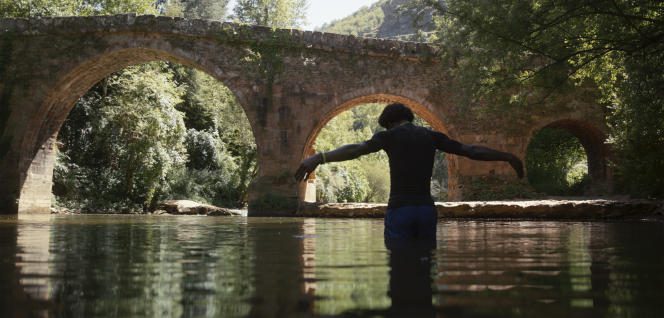THE OPINION OF THE “WORLD” – TO SEE
How do you stay alive, find the strength to name what you’ve been through, when you’ve been through hell in the camps? This question tormented the journalist and director Cécile Allegra, when she reported terrifying images and testimonies of rape and torture committed in the Sinai desert (journey in barbarism, which won Cécile Allegra and her co-director, Delphine Deloget, the Albert-Londres Prize in 2015), or when she investigated the death camps in Libya (Libya, anatomy of a crime2018), access route to Europe for migrants.
The director found an answer by creating, in 2016, in Conques, a medieval town in Aveyron, the Limbo association. About twenty people are part of it (psychologists, art therapists, volunteers, etc.), who accompany “survivors” of trafficking and torture in Libya, through speech, bodywork, singing. The objective is to allow these men and women to testify, one day, of their ordeal to a national or international body.
Putting words on their experience
The Song of the Living opens with the arrival in Conques of a group of young people from Eritrea, Sudan, Somalia, Guinea, etc. Most come from surrounding reception centers for asylum seekers. There begins a moment of community life. Walks, workshops, sharing meals with the brothers of the Sainte-Foy de Conques abbey…
The film is interested in the liberation of speech. The director talks with each of the young people (Bailo, Egbal, Anas, Chérif…), helps them put words to their experiences. Complicated exercise, painful, but which installs confidence. Composer Mathias Duplessy then thinks about a melody that could accommodate these testimonies. This direct cinema mixes with staging when one of the protagonists finally begins to sing in front of the camera: it’s a folk song for the Sudanese student Egbal, Why Leave Your Home?almost joyous, if one did not pay attention to the text.
This adventure is a rare moment of hospitality, the film highlighting the warm welcome that the inhabitants reserve for young people. The Song of the Living is thus the best antidote to other experiences on French territory: no later than January 11, the mayor of Callac (Côtes-d’Armor), a small Breton town, announced that he was giving up a reception project for refugees and asylum seekers, in order to “revitalize the territory”, in the face of growing opposition from part of the population.
You have 1.79% of this article left to read. The following is for subscribers only.
